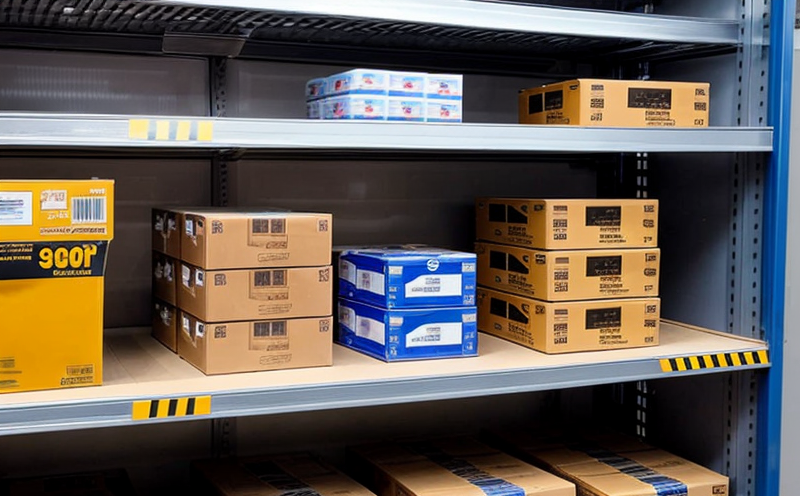Package Closure System Re-Sealability Testing
The integrity of a package’s closure system is paramount in ensuring the safety and efficacy of medical devices. A compromised re-sealable closure can lead to contamination, rendering the device unsuitable for use. This service focuses on evaluating the re-sealability properties of packaging systems used in the medical device industry. Through rigorous testing methods aligned with international standards such as ISO 11607-3 and ASTM F2489, we ensure that your devices maintain their sterile integrity throughout the shelf life.
Re-sealable closures are critical components for maintaining sterility during storage and use. They must be capable of being opened only once while ensuring they can be resealed multiple times without compromising the package’s integrity or contaminating its contents. In this service, we utilize specialized equipment to simulate real-world conditions that a medical device may encounter during transport, storage, and usage.
The testing process involves several critical steps:
- Specimen preparation: The packaging is carefully prepared according to the client’s specifications, ensuring it represents actual use scenarios.
- Instrumentation setup: High-precision machines are used to apply standard stress tests that mimic real-world conditions such as pressure changes and temperature fluctuations.
- Data collection: Continuous monitoring of closure integrity during re-sealing operations provides detailed insights into potential weaknesses or failures.
The testing process aims to identify any flaws in the design, manufacturing, or assembly of the re-sealable closures. These tests are crucial for ensuring compliance with regulatory requirements and enhancing product safety.
Our team of experts uses advanced technologies and methodologies to provide comprehensive analysis, offering detailed reports on test results and recommendations for improvements if necessary. By partnering with us, you gain access to cutting-edge facilities and experienced personnel who understand the unique challenges faced by medical device manufacturers.
In summary, package closure system re-sealability testing is essential in maintaining the sterility and integrity of medical devices throughout their lifecycle. Our comprehensive approach ensures that your products meet stringent quality standards and regulatory requirements while enhancing overall safety and reliability.
Applied Standards
The tests conducted under this service are based on internationally recognized standards such as ISO 11607-3 and ASTM F2489. These standards provide clear guidelines for evaluating the re-sealability of packaging systems used in medical devices.
- ISO 11607-3: This standard specifies requirements for barrier properties of packages intended to be used with aseptic processing and sterilization methods. It ensures that the package remains sterile after opening and re-closure.
- ASTM F2489: This document covers test procedures for determining whether a closure system on a medical packaging can be successfully resealed multiple times without compromising the sterility of its contents.
By adhering to these standards, we ensure that our testing methods are both reliable and consistent with industry best practices. Compliance with these standards is crucial for maintaining high levels of quality assurance in the medical device sector.
Benefits
Adopting package closure system re-sealability testing offers numerous advantages to manufacturers, ensuring not only regulatory compliance but also enhancing product safety and reliability. Here are some key benefits:
- Enhanced Sterility Assurance: By thoroughly evaluating the re-sealability of closures, we can identify potential weaknesses that could lead to contamination or compromised sterility.
- Improved Product Quality: Rigorous testing helps detect issues early in the development process, allowing for necessary modifications before mass production begins.
- Regulatory Compliance: Adhering to international standards ensures that your products meet regulatory requirements and can be marketed globally with confidence.
- Informed Decision-Making: Detailed reports provide valuable insights into the performance of re-sealable closures, guiding strategic decisions regarding design modifications or material changes.
- Cost Savings: Early detection of defects through testing helps avoid costly recalls and potential lawsuits resulting from product failures.
- Patient Safety: Ensuring that medical devices remain sterile throughout their lifecycle directly impacts patient health and safety, reducing the risk of infections or other adverse events.
- Brand Reputation: Consistently providing high-quality products builds trust with customers and strengthens brand reputation in a competitive market.
In conclusion, implementing package closure system re-sealability testing is an investment in product quality and patient safety. It demonstrates your commitment to delivering reliable and safe medical devices that meet the highest standards of integrity and sterility.
Use Cases and Application Examples
Package closure system re-sealability testing has wide-ranging applications across various segments within the medical device industry. Here are some specific use cases:
- Blood Collection Devices: Ensuring that sample containers remain sterile after initial opening and subsequent re-closure is critical for accurate blood analysis.
- IV Infusion Systems: Re-sealable closures prevent contamination during transport or storage, ensuring the safety of patients receiving intravenous therapy.
- Surgical Packs: Maintaining sterility in surgical packs helps reduce the risk of post-operative infections and ensures successful outcomes for surgeries.
- Breast Implants: Protecting these sensitive devices from microbial contamination during storage or handling is essential to patient well-being.
- Vitro Fertilization Kits: Maintaining sterility in fertility kits supports successful pregnancy rates and overall reproductive health.
These examples illustrate how critical package closure system re-sealability testing is across different medical device categories. By adhering to this service, manufacturers can ensure that their products meet the highest standards of integrity and sterility, thereby enhancing patient safety and satisfaction.





